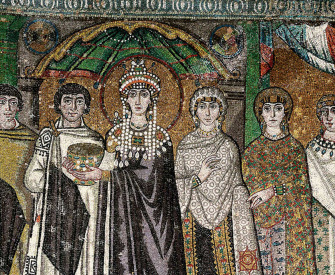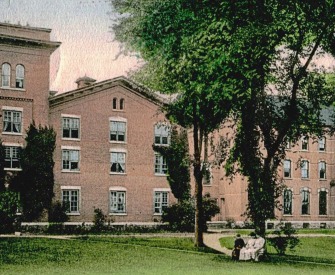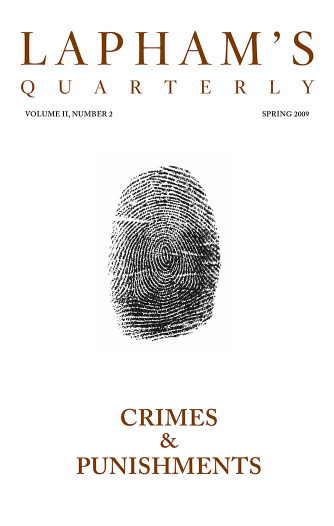Micio: Aeschinus didn’t come home last night from that dinner party, nor any of the servants he took with him. It’s true what they say: you may have stayed away from home or be late coming back, but you’ll have a better reception from your angry wife for all her hard words and suspicions than you’ll get from your loving parents. Suppose you’re late; your wife merely imagines you’re in love or someone loves you, or you are drinking and enjoying yourself and like to go off alone while she mopes by herself. Now look at me when my son hasn’t returned, full of fancies and forebodings. The boy may have caught a chill or fallen down and broken a leg…Why on earth should a man take it into his head to get himself something to be dearer to him than his own self? It’s not as if he’s my own son—he’s my brother’s, and my brother and I have had quite different tastes since boyhood. I’ve always chosen an easy life, stayed in town and enjoyed my leisure; and my married friends count me lucky never to have taken a wife. My brother’s the opposite in every way—lived in the country, always saved, and chose the hard way; he married and had two sons, then I adopted the elder and brought him up from boyhood and regarded him as my own. I’ve loved him like my own son: he has been my joy and sole delight. And I do all I can to ensure that he returns my affection. I give him money, turn a blind eye, don’t feel called on to exercise my authority in everything; in fact, I’ve brought him up not to hide from me those youthful misdeeds which other sons conceal from their fathers. For a young man who has acquired the habit of telling lies and deceiving his father, and has the effrontery to do so, will do this all the more to everyone else. A gentleman’s children should be treated honorably and like gentlemen. They can be restrained better that way, I believe, than through fear. But none of this suits my brother—he has different ideas. He keeps coming to me crying, “What are you doing, Micio? Why are you ruining our boy? Why do you let him drink and go after women, pay his bills for all this, and give him so much to spend on clothes? You’ve no sense.” Well, he has no feeling. It’s beyond all right and reason, and it’s quite wrong (in my view, at any rate) to hold that there’s more weight and stability in authority imposed by force than in one which rests on affection. This is my system and the theory I have evolved; if the threat of punishment alone drives a man to do his duty, he’ll be careful only so long as he thinks he may be detected: once he hopes not to be found out, he falls back into his old ways. But a man won by kindness is sincere in his behavior, eager to make you a return, and stays the same whether he’s with you or not. A father’s duty then is to train his son to choose the right course of his own free will, not from fear of another; this marks the difference between a father and a tyrant in the home. If he fails to do this, he should admit he doesn’t know how to manage his children.
© 1965, 1967, 1976 by Betty Radice. Used with permission of Penguin Group Ltd.
From Brothers. Supposedly born in Carthage around 195 bc, the dramatist was brought to Rome as a slave by a senator whose name, Terentius, he assumed after receiving an education and his freedom. The author of six plays, among them The Self-Tormentor and The Eunuch, Terence enjoyed the friendship of various noblemen whom his rivals claimed helped him write his plays. He is best remembered for his line, “I am a man, I consider nothing that is human alien to me.”
Back to Issue



